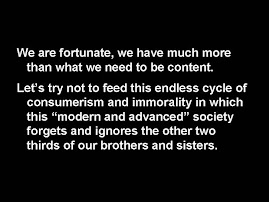Indian Philosophy & The Karma Theory
There are hundreds of Sanskrit works on most of the systems of
Indian thought and scarcely a hundredth part of them has been translated.
Indian modes of expression, entailing difficult technical philosophical
terms are so different from those of European thought, that they can
hardly ever be accurately translated. It is therefore very difficult
for a person unacquainted with Sanskrit to understand Indian philosophical
thought in its true bearing from translations.
The old civilisation of India was a concrete unity of many-sided
developments in art, architecture, literature, religion, morals, and
science so far as it was understood in those days. But the most important
achievement of Indian thought was philosophy. It was regarded as the goal
of all the highest practical and theoretical activities, and it indicated
the point of unity amidst all the apparent diversities which the complex
growth of culture over a vast area inhabited by different peoples produced.
It is not out of place here to mention that the
orthodox Hindu view holds that whatever may be written in the
Veda is to be interpreted as commandments to perform certain
actions (_vidhi_) or prohibitions against committing certain others
(_ni@sedha_). Even the stories or episodes are to be so interpreted
that the real objects of their insertion might appear as only to
praise the performance of the commandments and to blame the
commission of the prohibitions. No person has any right to argue
why any particular Vedic commandment is to be followed, for no
reason can ever discover that, and it is only because reason fails
to find out why a certain Vedic act leads to a certain effect that
the Vedas have been revealed as commandments and prohibitions
to show the true path of happiness. The Vedic teaching belongs
therefore to that of the Karma-marga or the performance of Vedic
duties of sacrifice, etc. The Upani@sads however do not require
the performance of any action, but only reveal the ultimate truth
and reality, a knowledge of which at once emancipates a man.
The Karma Theory._
It is, however, remarkable that with the exception of the
Carvaka materialists all the other systems agree on some fundamental
points of importance. The systems of philosophy in India
were not stirred up merely by the speculative demands of the
human mind which has a natural inclination for indulging in
abstract thought, but by a deep craving after the realization of
the religious purpose of life. It is surprising to note that the
postulates, aims and conditions for such a realization were found
to be identical in all the conflicting systems. Whatever may be
their differences of opinion in other matters, so far as the general
postulates for the realization of the transcendent state, the _summum
bonum_ of life, were concerned, all the systems were practically in
thorough agreement. It may be worth while to note some of them
at this stage.
First, the theory of Karma and rebirth. All the Indian systems
agree in believing that whatever action is done by an individual
leaves behind it some sort of potency which has the power to
ordain for him joy or sorrow in the future according as it is good
or bad. When the fruits of the actions are such that they cannot
be enjoyed in the present life or in a human life, the individual
has to take another birth as a man or any other being in order to
suffer them.
The Vedic belief that the mantras uttered in the correct accent
at the sacrifices with the proper observance of all ritualistic details, exactly according to the directions without the slightest error even in the smallest trifle, had something like a magical virtue automatically to produce the desired object immediately or after a lapse of time, was probably the earliest form of the Karma doctrine. It postulates a semi-conscious belief that certain
mystical actions can produce at a distant time certain effects
without the ordinary process of the instrumentality of visible
agents of ordinary cause and effect. When the sacrifice is performed,
the action leaves such an unseen magical virtue, called
the _ad@r@s@ta_ (the unseen) or the _apurva_ (new), that by it the desired
object will be achieved in a mysterious manner, for the _modus
operandi_ of the _apurva_ is unknown. There is also the notion
prevalent in the Sa@mhitas, as we have already noticed, that he
who commits wicked deeds suffers in another world, whereas he
who performs good deeds enjoys the highest material pleasures.
These were probably associated with the conception of _@rta_, the
inviolable order of things. Thus these are probably the elements
which built up the Karma theory which we find pretty well
established but not emphasized in the Upani@sads, where it is said
that according to good or bad actions men will have good or bad
births.
To notice other relevant points in connection with the Karma
doctrine as established in the astika systems we find that it was
believed that the unseen (_ad@r@s@ta_) potency of the action generally
required some time before it could be fit for giving the doer the
merited punishment or enjoyment. These would often accumulate
and prepare the items of suffering and enjoyment for the doer in
his next life. Only the fruits of those actions which are extremely
wicked or particularly good could be reaped in this life. The
nature of the next birth of a man is determined by the nature of
pleasurable or painful experiences that have been made ready for
him by his maturing actions of this life. If the experiences determined
for him by his action are such that they are possible to be
realized in the life of a goat, the man will die and be born as a
goat. As there is no ultimate beginning in time of this world
process, so there is no time at which any person first began his
actions or experiences. Man has had an infinite number of past
lives of the most varied nature, and the instincts of each kind of
life exist dormant in the life of every individual, and thus whenever
he has any particular birth as this or that animal or man, the special instincts of that life (technically called _vasana_) come forth. In accordance with these vasanas the person passes through the painful or pleasurable experiences as determined for him by his action. The length of life is also determined by the number and duration of experiences as preordained by the fructifying
actions of his past life. When once certain actions become fit for
giving certain experiences, these cannot be avoided, but those
actions which have not matured are uprooted once for all if the
person attains true knowledge as advocated by philosophy. But
even such an emancipated (_mukta_) person has to pass through
the pleasurable or painful experiences ordained for him by the
actions just ripened for giving their fruits. There are four kinds
of actions, white or virtuous (_s'ukla_), black or wicked (_k@r@s@na_),
white-black or partly virtuous and partly vicious (_s'ukla-k@r@s@na_) as
most of our actions are, neither black nor white (_as'uklak@r@s@na_),
i.e. those acts of self-renunciation or meditation which are not
associated with any desires for the fruit. It is only when a person
can so restrain himself as to perform only the last kind of action
that he ceases to accumulate any new karma for giving fresh fruits.
He has thus only to enjoy the fruits of his previous karmas which
have ripened for giving fruits. If in the meantime he attains true
knowledge, all his past accumulated actions become destroyed,
and as his acts are only of the as'uklak@r@s@na type no fresh karma
for ripening is accumulated, and thus he becomes divested of all
karma after enjoying the fruits of the ripened karmas alone.
The Jains think that through the actions of body, speech
and mind a kind of subtle matter technically called karma is produced.
The passions of a man act like a viscous substance that
attracts this karma matter, which thus pours into the soul and
sticks to it. The karma matter thus accumulated round the soul
during the infinite number of past lives is technically called
_karmas'arira_, which encircles the soul as it passes on from birth
to birth. This karma matter sticking to the soul gradually ripens
and exhausts itself in ordaining the sufferance of pains or the enjoyment
of pleasures for the individual. While some karma matter is being
expended in this way, other karma matters are accumulating by
his activities, and thus keep him in a continuous process of
suffering and enjoyment. The karma matter thus accumulated
in the soul produces a kind of coloration called _les'ya_, such as
white, black, etc., which marks the character of the soul. The idea of the s'ukla and k@r@s@na karmas of the Yoga system was probably
suggested by the Jaina view. But when a man is free from
passions, and acts in strict compliance with the rules of conduct,
his actions produce karma which lasts but for a moment and is
then annihilated. Every karma that the sage has previously
earned has its predestined limits within which it must take effect
and be purged away. But when by contemplation and the strict
adherence to the five great vows, no new karma is generated, and
when all the karmas are exhausted the worldly existence of the
person rapidly draws towards its end. Thus in the last stage of
contemplation, all karma being annihilated, and all activities
having ceased, the soul leaves the body and goes up to the top
of the universe, where the liberated souls stay for ever.
Buddhism also contributes some new traits to the karma
theory which however being intimately connected with their
metaphysics will be treated later on.
NOTE ON THE PRONUNCIATION OF TRANSLITERATED SANSKRIT AND PALI WORDS
The vowels are pronounced almost in the same way
as in Italian, except that the sound of _a_ approaches
that of _o_ in _bond_ or _u_ in _but_, and _a_ that of _a_ as in _army_.
The consonants are as in English, except _c_, _ch_ in church;
_@t_, _@d_, _@n_ are cerebrals, to which English _t_, _d_, _n_ almost
correspond; _t_, _d_, _n_ are pure dentals; _kh_, _gh_, _ch_, _jh_,
_@th_, _@dh_, _th_, _dh_, _ph_, _bh_ are the simple sounds plus an
aspiration; _n_ is the French _gn_; _@r_ is usually pronounced
as _ri_, and _s'_, _@s_ as _sh_.
Thursday, February 11, 2010
Subscribe to:
Post Comments (Atom)



No comments:
Post a Comment